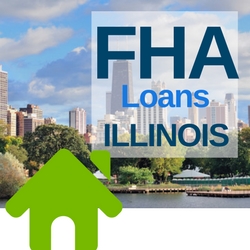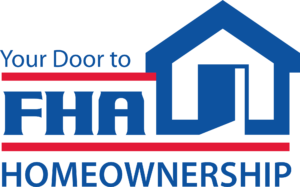There are a lot of great reasons to own a home. It’s a long-term investment in your future. It’s an asset that can become more valuable over time. And you have the security and pride that can only come from owning your own property. But as we all know, owning a home is often a difficult and expensive process. It’s important to select the mortgage program that works best for you. So, for a lot of folks that means looking at an FHA loan in Illinois and the FHA loan requirements Illinois.
But as we all know, owning a home is often a difficult and expensive process. It’s important to select the mortgage program that works best for you. So, for a lot of folks that means looking at an FHA loan in Illinois and the FHA loan requirements Illinois.
We’ve compiled a list of some of the most common questions about Illinois FHA loans and answered them – and if you’re from Illinois yourself, maybe you’ll find that this type of mortgage is right for you. You don’t have to move to Illinois for that. It is a Federal program that wants you to have a house! So, FHA loan requirements Illinois work in all of the US!
We Can Help You Qualify For A FHA Loan in Illinois
Fill Out The Form Below To Get Help Today!
What is an FHA Loan in Illinois?
An FHA loan is a type of housing loan that is insured by the Federal Housing Administration, which is a department of the United States federal government.
The loan is still issued by a private moneylender or bank, but because the FHA promises the reimburse the lender if you can’t make your payments, lenders are willing to make much more substantial loans than they would otherwise.
In some cases, they will even grant mortgages to applicants who they would normally reject outright! This makes the FHA Loan a great choice for first-time homeowners, low-income families, and buyers who are interested primarily in making a low down payment.
Click here for more information on FHA Loans.
What are the different types of FHA loans in Illinois?
When most people talk about FHA mortgages, they’re thinking of fixed-rate FHA loans. But there are multiple alternatives in this option, and homeowners in Illinois should familiarize themselves with all the options available in their state so that they can pick the FHA loan that’s right for them:

- A 5-year adjustable-rate FHA loan in Illinois is an option that’s ideal for low-income and moderate-income families who are buying their first home. An adjustable-rate loan starts at an interest rate that’s lower than the fixed-rate, usually by about one percent. This interest rate holds for five years without changing, which gives the loan recipient time to save up for the larger payments to follow.
- A fixed-rate FHA loan in Illinois is an option that’s recommended for buyers who want a home but who haven’t been able to save up money for the purchase, often young first-time buyers who have just graduated college or who are recently married. A fixed-rate loan keeps the same interest rate for the entirety of the payback period, which is usually either 15 or 30 years. If your payment changes at all, it will only be slight adjustments arising from deviations in insurance or property taxes.
- A condominium unit FHA loan in Illinois is for loan applicants who want to buy a condominium unit instead of a traditional house. Condominium units usually – but not exclusively – appeal most to low-income and moderate-income singles.
Advantages of FHA loan in Illinois
FHA loans are the most popular in the country – in fact, roughly 30 percent of all home loans in Illinois are insured by the FHA. It’s not hard to see why when you look at the advantages:
- FHA loans Illinois has a much smaller down payment, charging only 3.5 percent of the total home’s value instead of the more typical 20 percent. This is the biggest advantage of an FHA loan and why this type of loan is most popular with buyers who haven’t been able to save up a lot of money for the purchase of a home.
- FHA loans in Illinois have much more flexible requirements. FHA-insured lenders will accept credit scores of only 580 and have no minimum income requirements. They also allow for a much higher debt-to-income ratio than traditional mortgages – sometimes approving D-I ratios as high as 50% in place of the usual 31%.
Because they’re backed by the US Treasury, FHA loans are seen as a much safer investment by moneylenders. As a result, they’re much cheaper upfront and much more accessible and traditional loans. However…
Disadvantages for an FHA loan
By now, the advantages of an FHA loan in Illinois should be obvious. But this type of loan can come with disadvantages as well, which is why it’s always best to find the mortgage that works for you. There is no “one size fits all.”
- FHA loan recipients have to pay an FHA funding fee which usually comes out to about 1.7 percent of the total mortgage. This fee goes to the Federal Housing Administration and is a way for them to protect their investment. Think of it as an insurance premium.
- FHA loan recipients can’t cancel their Private Mortgage Insurance until they’ve completely paid off the home. In Illinois, conventional mortgages typically let homeowners cancel their PMI after they have accrued equity equal to 20 percent of the total value of the property.
- FHA loans tend to have slightly higher interest rates, which is how the banks and moneylenders make back their money from the small upfront down payment. This means that FHA mortgages usually cost less upfront but can end up costing more than a conventional loan in the long run.
What properties qualify for an FHA home loan?
FHA loans often have lower loan limits than some conventional mortgages. You can see a per-country list that’s up-to-date for 2020 here, but for most counties in Illinois FHA loans can only pay off a property that costs $331,760 or less.
This is perfect for a low or moderate-income family but may hurt those who are looking at high-cost areas.
In addition, properties have to meet certain eligibility requirements. You can check them out in the 21-page checklist in Chapter 3 of the Department of Housing and Urban Development’s Handbook 4150.2.
The house will have to go through an inspection and appraisal. This can be a bit of a hassle – but it’s worth it. Most of these guidelines are safety standards; among other things, appraisers will look for:
- Faulty HVAC system
- Roof leakage
- Plumbing leakage
- A lack of hot water
- Low water pressure
As well as additional requirements for condominiums, which you can see at HUD.gov. Believe me, these are things you want if you’re committing to paying off a property for 30 years.
How important is credit when applying for an FHA loan in Illinois?
If you’re applying for a loan, you need a certain amount of credit, but FHA loans Illinois have much lower credit requirements than conventional loans. In Illinois, FHA Underwriters usually require a FICO credit score of 580 and will require three open tradelines on your credit report. Each report needs to have been there for a minimum of 12 months.
However, having a credit score under 580 won’t necessarily keep you from qualifying. Some banks will accept credit scores as low as 500 – but be aware, they will need to make up for that elsewhere.
Lower credit scores usually mean higher down payments – sometimes as high as 10 percent. That’s about 3 times the down payment on a typical FHA mortgage, though it’s still lower than most conventional home loans.
In addition, you may not have to have a traditional FICO credit score to meet FHA loan requirements Illinois. Some lenders will now allow alternative forms of credit. A good example is a long-standing account with your phone or cable company, in place of a credit score.
What are the FHA loan requirements in Illinois?
In 2020, the minimum requirements for an FHA mortgage in Illinois are:
- A minimum credit score of 500 or two forms of alternative credit.
- A property that is worth less than $331,760 (this varies by county) and meets the minimum property standards
- A debt-to-income ratio of 50 percent or less
These are the minimum requirements set by the state and federal government, though lenders will often set their own standards. For example, almost all FHA Underwriters require a credit score of 580. They also seek a debt-to-income ratio of around 30-40 percent. This gets the lowest possible down payment.
However, it’s always worthwhile to “shop around” for a lender that can meet your needs.
How do you receive an FHA loan in Illinois?

Despite a common misconception, the Federal Housing Administration doesn’t originate FHA mortgages. You will need to find a bank, mortgage company, or another moneylender who works with the government to give out these kinds of loans.
Because these loans are so popular, most lenders will probably have some kind of FHA program in place.
Once you’ve shopped around and found an FHA-partnered Illinois lender with terms that work for you, you will have to apply for the loan. A representative will ask for proof of your job history, credit score, and income documentation. They will check all this to make sure you fit the federal requirements listed above as well as the requirements of the moneylender.
This process works just like it does for any other loan.
What are the FHA loan rates for Illinois?
That depends. The real estate market is in a constant state of flux and loan rates often change on a daily basis depending on current economic indicators.
Besides, Illinois is a big state – the rates in Chicago will be different than the rates in, say, Galena. Do research to see which vender in your area is offering the lowest rates. So, your payments won’t become too much to handle down the road.
Do you have to be a first-time homebuyer for an FHA loan in Illinois?
No – there is no truth to this common misconception. FHA loans are often recommended for first-time homebuyers because their advantages appeal most to that income bracket. Anyone who meets the minimum requirements printed above can apply for this type of loan.
What is the maximum income limit for FHA loans?
The idea of a “maximum income limit” is another common misconception with no truth to it.
FHA loans are usually best for those in low or moderate-income brackets. It has steep loan limits and somewhat higher interest rates. The best is that there is no maximum income limit for FHA loan applicants in the state of Illinois. So, you got this. You can become a homeowner now!











